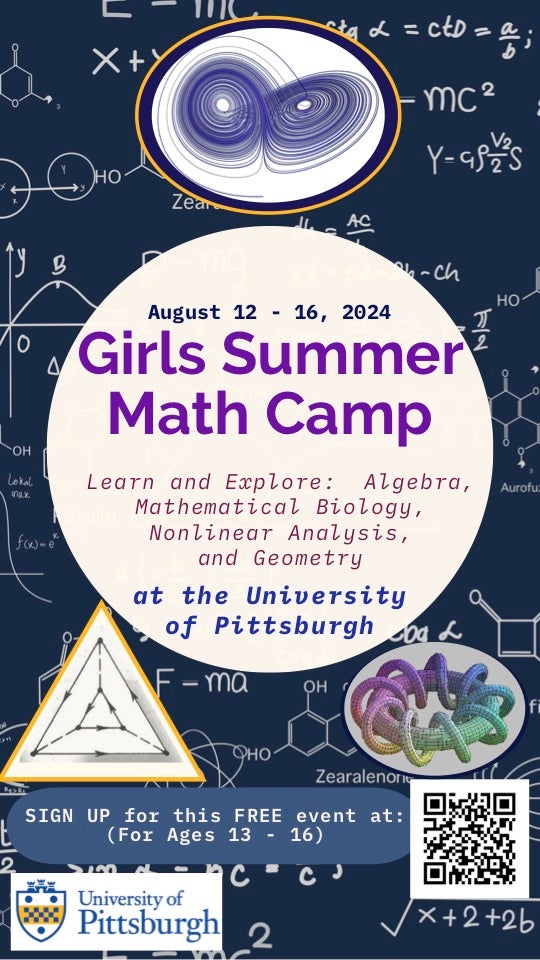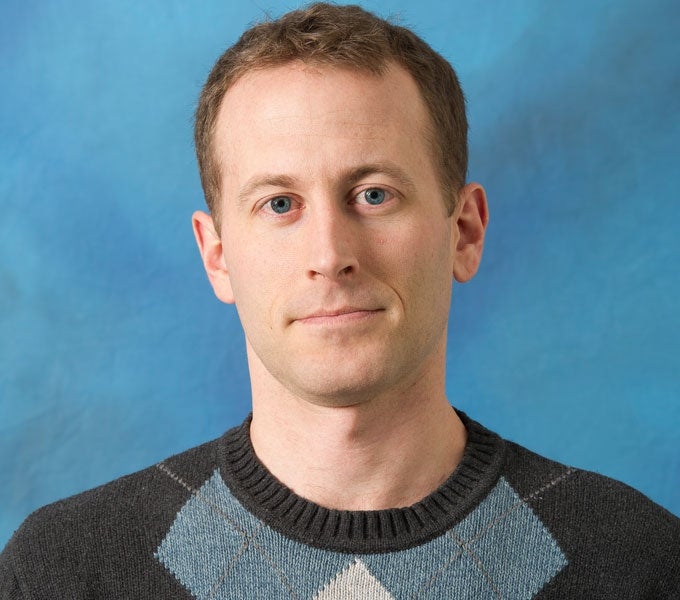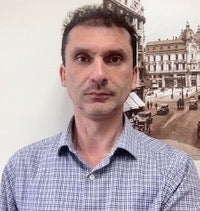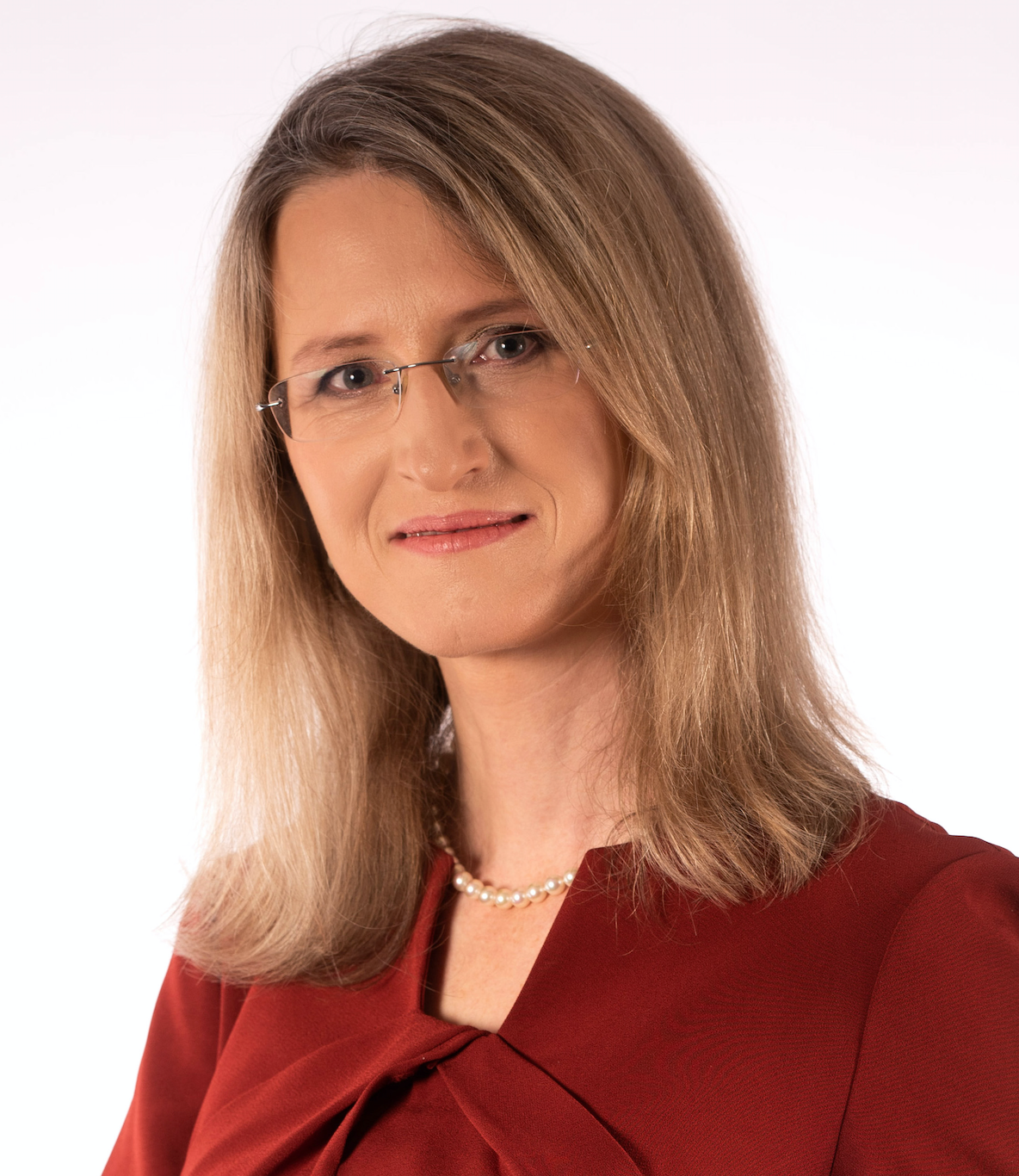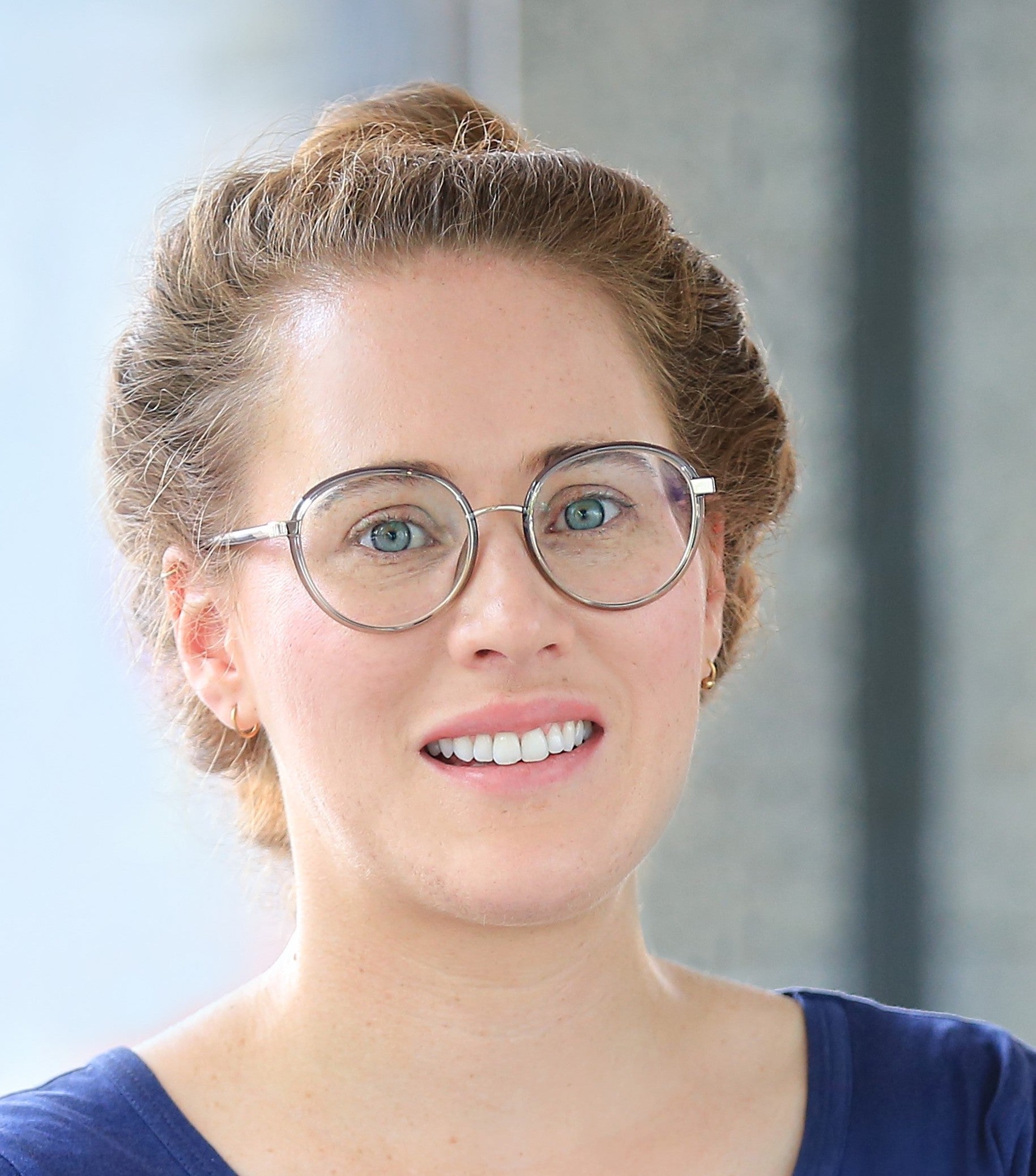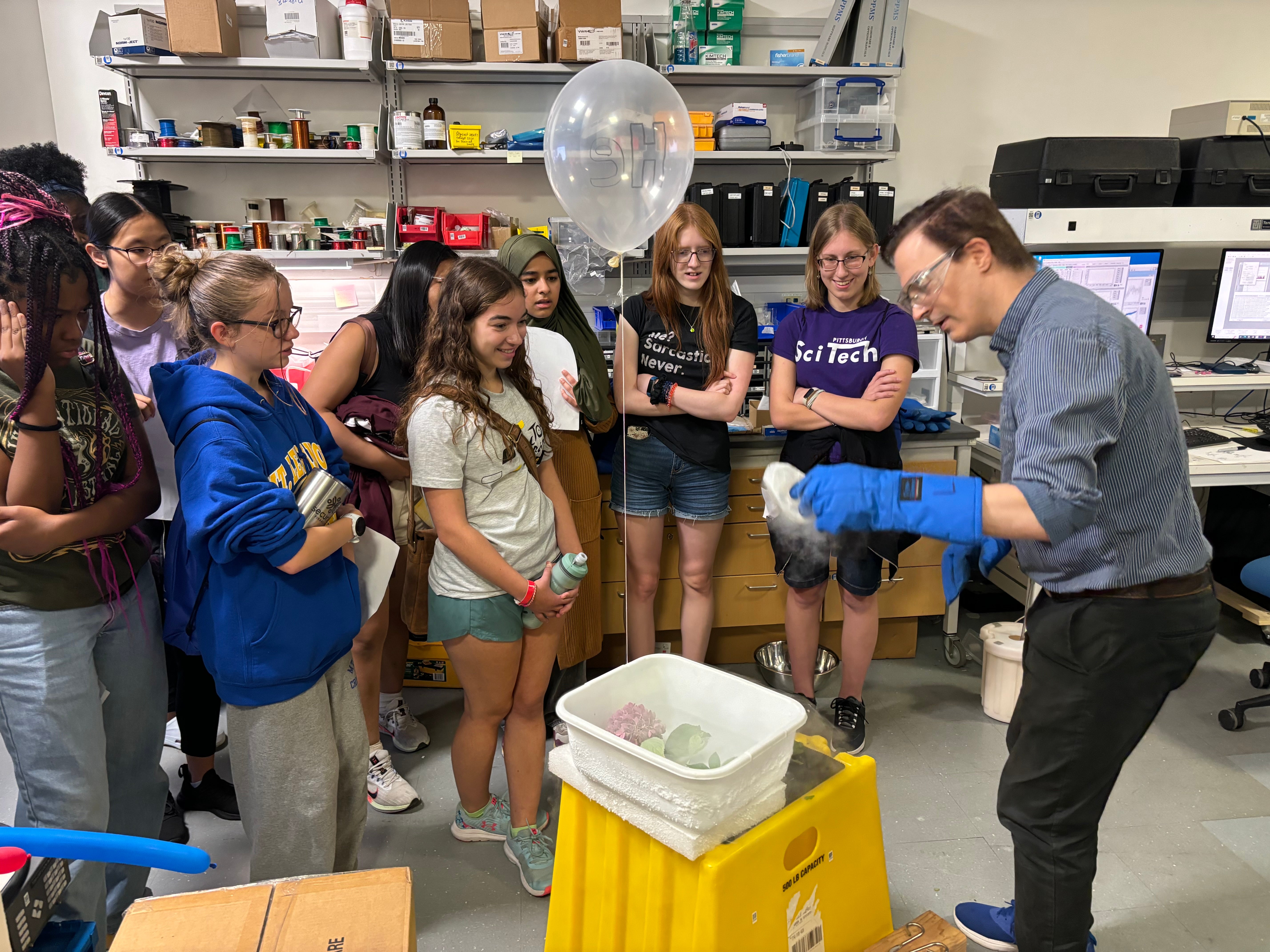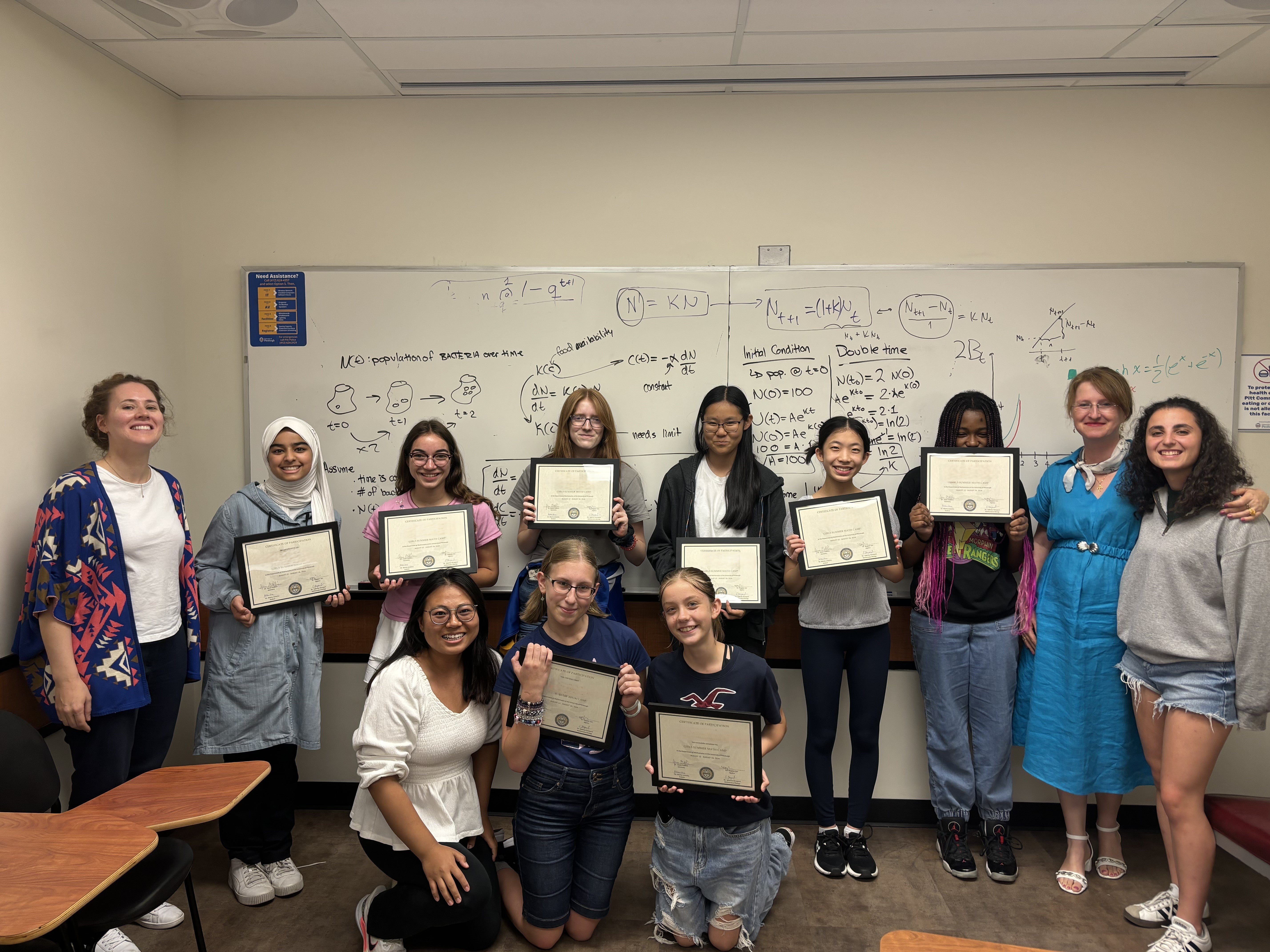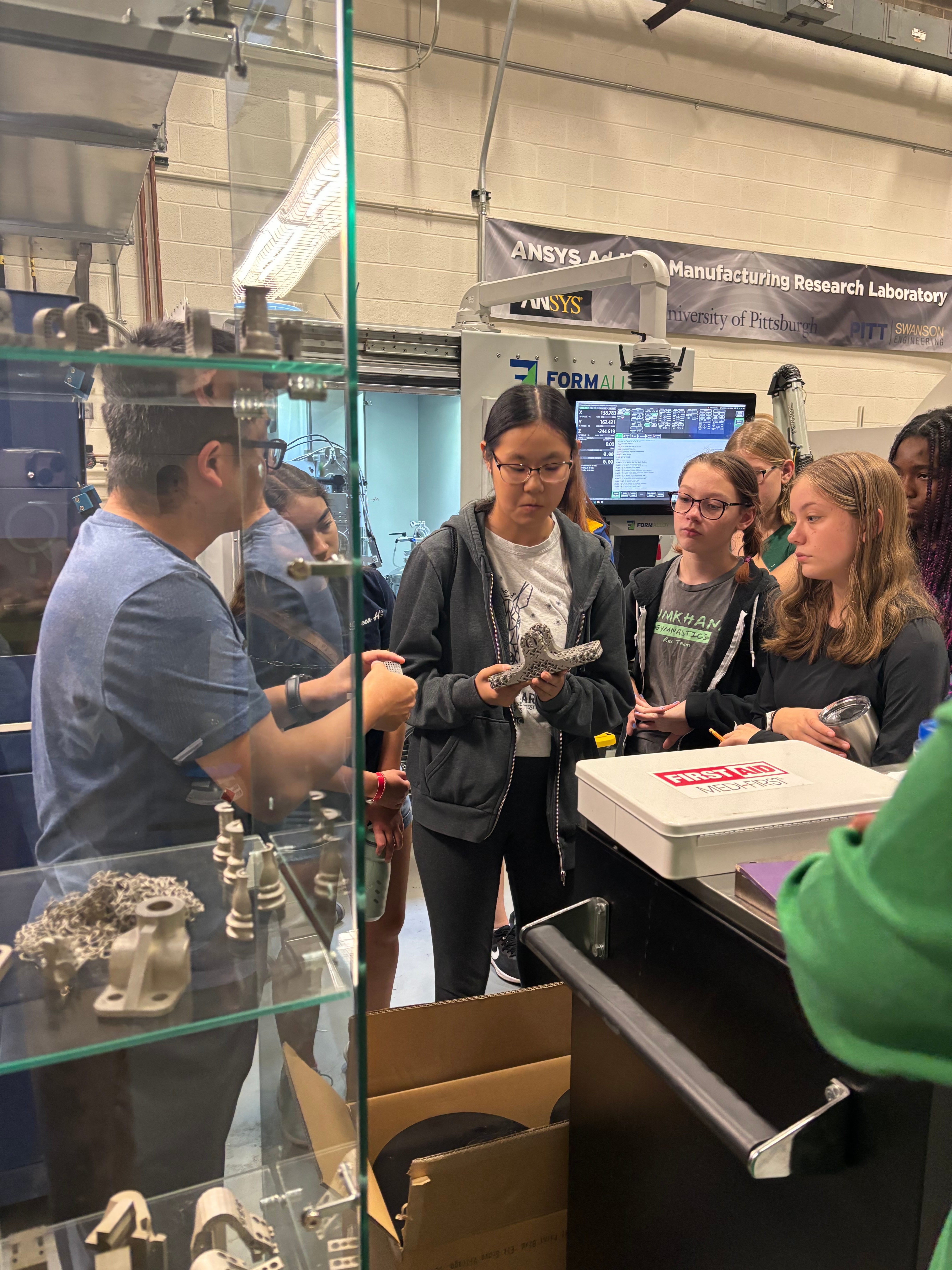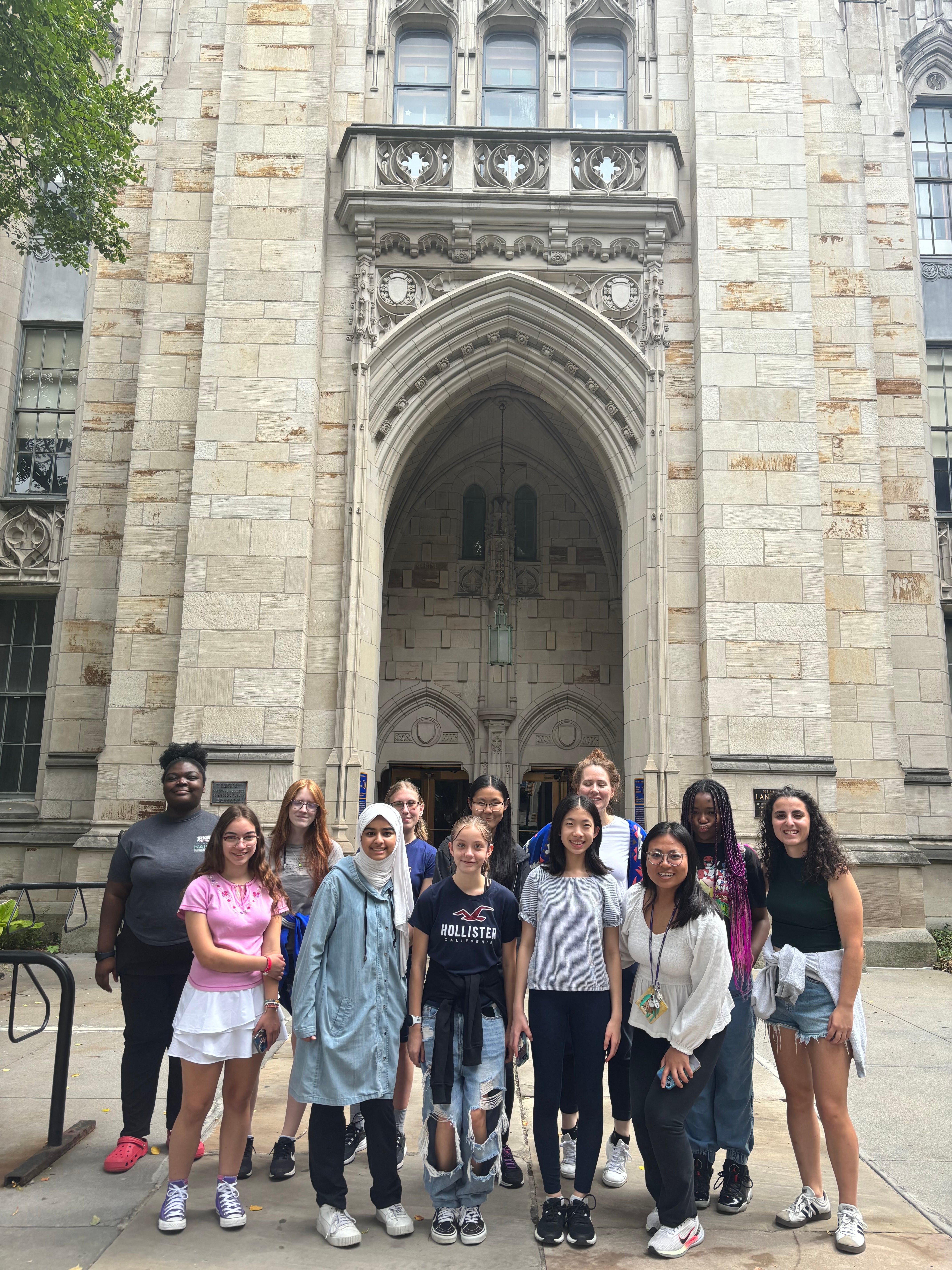Date and Venue: August 12 to August 16, 2024, Department of Mathematics at the University of Pittsburgh. Here is the article in Pitt News about our event!
This event is free of charge. We will specifically encourage females of underserved groups to apply.
Registration Link: The deadline has now passed. If you have any questions, please contact us at girlsatPitt@gmail.com
Event Description: This 5-day long event is aimed at female high school students (ages 13-16) attending schools in the greater Pittsburgh area with the objective to expose the participants to different areas in mathematics and thereby spark the interest in mathematics among female pupils and contribute to the development of future female scientists.
Schedule:
|
9am - noon |
noon - 1:15pm |
1:15pm - 4:00pm |
4:15pm - 5pm |
|
|
Monday, August 12 |
Lectures: |
Lunch |
Group Projects |
Research Talk: |
|
Tuesday, August 13 |
Lectures: |
Lunch |
Group Projects |
Lab Tour: |
|
Wednesday, August 14 |
Lectures: |
Lunch |
Group Projects |
Research Talk: |
|
Thursday, August 15 |
Lectures: |
Lunch |
1pm-3:45pm Group Projects |
4pm-5pm Lab Tour: |
|
Friday, August 16 |
9am-10:30am Student Group Presentations |
Lunch |
1pm-2:30pm Nationality Rooms Tour |
Closing of the Program |
Each day, except for Friday, is structured in the same way. The morning consists of lectures concerning the specific area of Mathematics, prepared and executed by the expert faculty. This is followed by lunch (provided by the organizers) and furthered followed in the afternoon by adequate group-projects, where students can test their understanding of the material taught in the morning session. The group-project sessions will be supervised by the graduate students who are the Pitt chapter AWM members in the Department of Mathematics. The specific group-project tasks will be developed by the faculty who taught the corresponding morning session. Each such topics day ends with a talk by a Pitt affiliated researcher and we will also try to organize a field trip to a physics or biology lab. On Friday morning, students will be given the opportunity to present their projects that they worked on during the week. After lunch, a campus tour is planned with some final panel Q&A where students can ask questions to the participating faculty members and graduate students, and a final general public lecture.
Poster: (click on the image below to download the file)
Location and Address
Department of Mathematics at the University of Pittsburgh.
A staff member, Cheyenne Rhodes, will be waiting at the pick up/drop off location to accompany students to the classroom. She will wait from 8:50am to 9:10am and from 5:00 to 5:10pm. If you are going to be late or if your student cannot attend for the day please contact us at the departmental phone number.
The pick up and drop off location is at the Parking Lot of the University Club, right in front of the main entrance.
Speaker Information
Organizers: Marta Lewicka, Sabrina Streipert, AWM chapter University of Pittsburgh
Principal Supervising Faculty:
Professor Jason DeBlois: Geometry
This course will concern areas of polygons in Euclidean, spherical, and hyperbolic geometry. We’ll start with Heron’s and Brahmagupta’s formulas, each of which is named after a mathematician of antiquity. These respectively describe the area of a triangle or “cyclic” quadrilateral – meaning one inscribed in a circle – as a function of its side lengths. Then we’ll discuss how, much more recently, mathematician David Robbins generalized these formulas to a conjecture about a polynomial relation between the areas and side lengths of a cyclic polygons with an arbitrary number of sides. We’ll finish by considering versions of all of this in non-Euclidean geometries: spherical and hyperbolic.
Professor Bogdan Ion: Algebra
This course will concern the Stern-Brocot tree and its applications.The Stern-Brocot tree is a discrete structure with an abundance of remarkable properties. For example, it can be used to express any positive fraction as a continued fraction. One important and visually appealing incarnation of this structure is a family of circles tangent to a line at rational points (the Ford circles). We will explore the properties of these structures and make connections with other phenomena such as Diophantine approximation (approximation of real numbers by rational numbers), frieze patterns, Pythagorean triples, quadratic forms, etc.
Professor Marta Lewicka: Analysis
I will give a non-technical introduction to the concept of Topological Degree, one of the leading notions in the Nonlinear Analysis. Using this notion and its properties, we will then try to rigorously deduce several striking and classical mathematical results, such as: the Theorem on Combing a Sphere, the Theorem on Cutting a Sandwich (in R^n), and the Antipodal Theorem.
Professor Sabrina Streipert: Mathematical Biology
During my dedicated day, you will receive an introduction to mathematical biology and learn about how mathematics can be used to help understand biological processes and predict their behavior. You will receive an introduction to different mathematical techniques to describe biological processes mathematically, explore computational tools to investigate these mathematical models, and learn how to conduct data analysis. We will focus particularly on population modeling, where we will answer questions such as ''How can we mathematically capture the relation between feral cats and squirrels?'', ''How does our fishing behavior impact the length of salmon?", and "What can we do to ensure the sustainability of species?''. The latter includes aspects from epidemiology, as we will investigate the impact of diseases on the behavior and survival of populations.
Other Faculty Involved:
Professor Thomas Hales (Department of Mathematics)
Dr. Rahnuma Islam (Department of Mathematics)
Professor Jeremy Levy (Department of Physics and Astronomy, Pittsburgh Quantum Institute)
Professor Xiong Wei (Department of Mechanical Engineering and Materials Science)
AWM UPitt Chapter PhD Students Involved:
Rui Fang
Isabel Barrio Sanchez
Anna Kishida Thomas
Akshara Vincent
Sara Jo Weinstein
Contact us at: girlsatPitt@gmail.com
